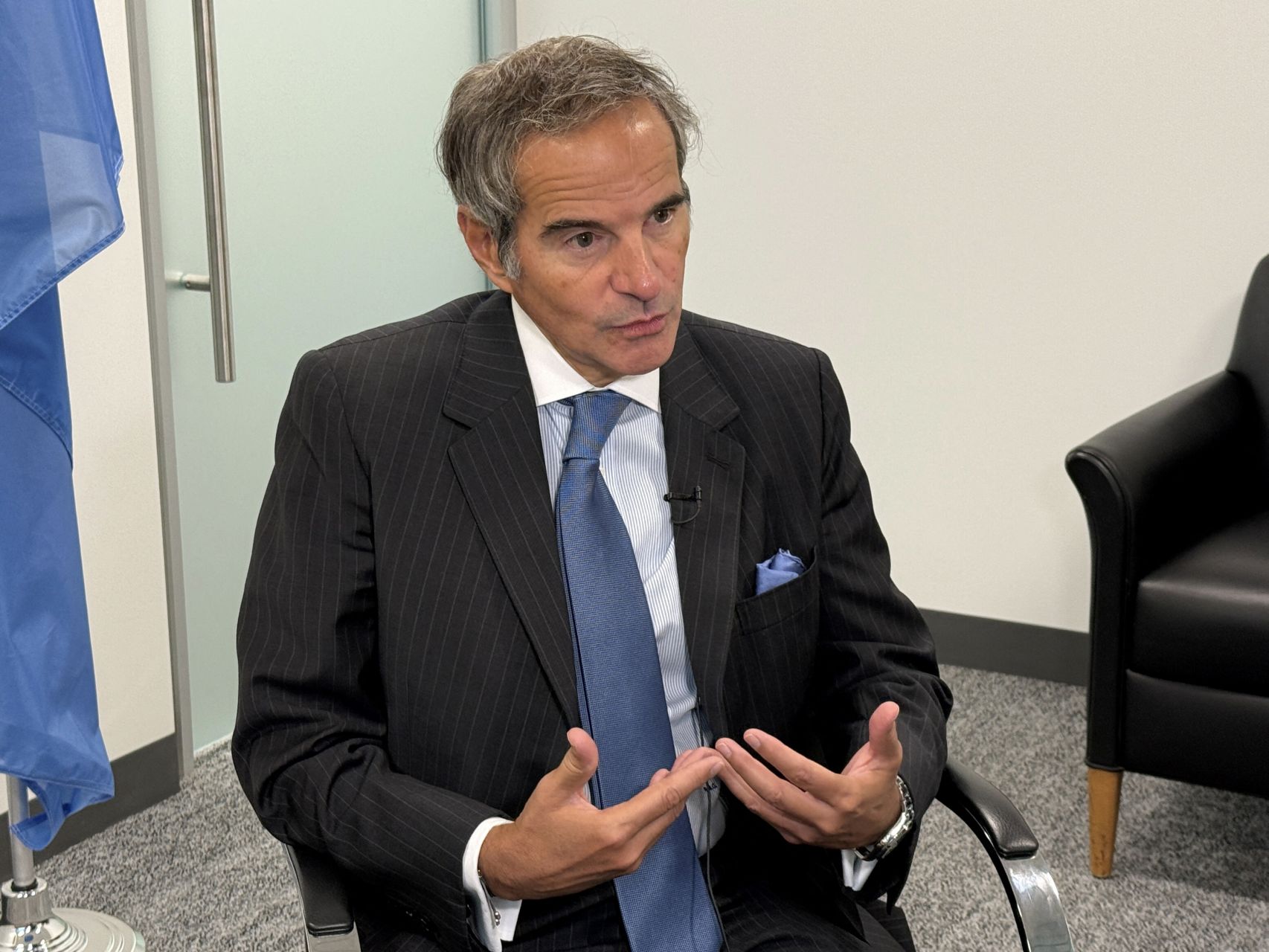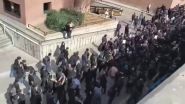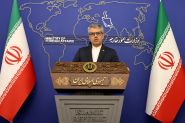- Home
- Middle East
- IAEA Chief Warns of Challenges in Iran Nuclear Talks, Sees Hope for Diplomacy

Director General of the International Atomic Energy Agency (IAEA) Rafael Grossi speaks during an interview in New York City, on September 22, 2025, in Washington, DC. ©Aron Ranen / AFP
Discussions with Iran over its nuclear program are at a “difficult juncture,” the head of the International Atomic Energy Agency (IAEA), Rafael Grossi, acknowledged Monday, while leaving open the possibility of a diplomatic breakthrough by the end of the week.
“Clearly, this is a rather difficult moment,” Grossi said in an interview with AFP in New York, on the sidelines of the United Nations General Assembly, as Tehran threatens to suspend cooperation with the UN agency if European sanctions are reinstated on Sunday.
The UN Security Council on Friday approved the reimposition of sanctions lifted under the 2015 nuclear deal framework. Iran has until midnight Saturday to reach a consensus on conditions set by the E3, Germany, France, and the United Kingdom, to extend the suspension of sanctions.
“What matters is that communications continue,” Grossi stressed.
Iran’s Foreign Minister Araghchi met with IAEA Director General Grossi in New York to discuss the latest situation following the triggering of the snapback mechanism at the UN Security Council.
Araghchi emphasized that Iran seeks diplomacy and a peaceful solution but will continue on its own path if talks fail.
Grossi added that other meetings could take place “perhaps over the course of the week.”
Grossi also met Monday with French President Emmanuel Macron, welcoming the involvement of U.S. envoy Steve Witkoff, “who is exploring different channels” of communication.
“Emmanuel Macron is very committed, as he has been historically,” Grossi said, praising the efforts of France, Germany, and the United Kingdom. He stressed the importance of consulting all parties, starting with the United States, which withdrew from the 2015 deal.
“The IAEA is not a party to the agreement, but it is essential in every scenario. We continue our work with Ambassador Witkoff,” he explained.
Last week, the E3 determined that Iran had not met the conditions required to extend the suspension of sanctions, paving the way for their reimposition. Paris, London, and Berlin specifically demand that Iran grant IAEA inspectors full access to its facilities, including those damaged in Israeli and U.S. attacks last June, and that talks resume, notably with the U.S.
Iran, for its part, denounces political pressure and accuses European countries of ignoring a “balanced” proposal, the details of which have not been disclosed.
“I am neither optimistic nor pessimistic” about this week’s outcome, Grossi said, but added that the fact that communication channels remain open gives hope for a diplomatic solution, as diplomats consider a provisional agreement to buy more time.
“I really hope, and I think it cannot be ruled out, that we can still reach an agreement,” said the IAEA chief. He stressed the need to “navigate carefully” and remain independent from political considerations to avoid Iran leaving the Nuclear Non-Proliferation Treaty.
Not Forgetting Zaporizhzhia
Grossi also called attention to other countries, particularly Ukraine, entering its fourth winter of war with Russia. “The fact that we no longer hear about Zaporizhzhia does not mean things are improving,” he said, noting that IAEA experts are still at the Ukrainian nuclear plant currently under Russian control.
“There continues to be heavy military activity (…) a very fragile electrical connection between the plant and external power lines, which means the stability of the plant is at risk,” he explained. Water levels necessary for cooling the plant are “also compromised.”
Given what he described as a “fragile” situation, Grossi will travel to Moscow later this week to participate in an international forum on the nuclear industry. He said it would be an opportunity to “continue discussions,” without specifying who he might meet.
AFP
Read more



Comments